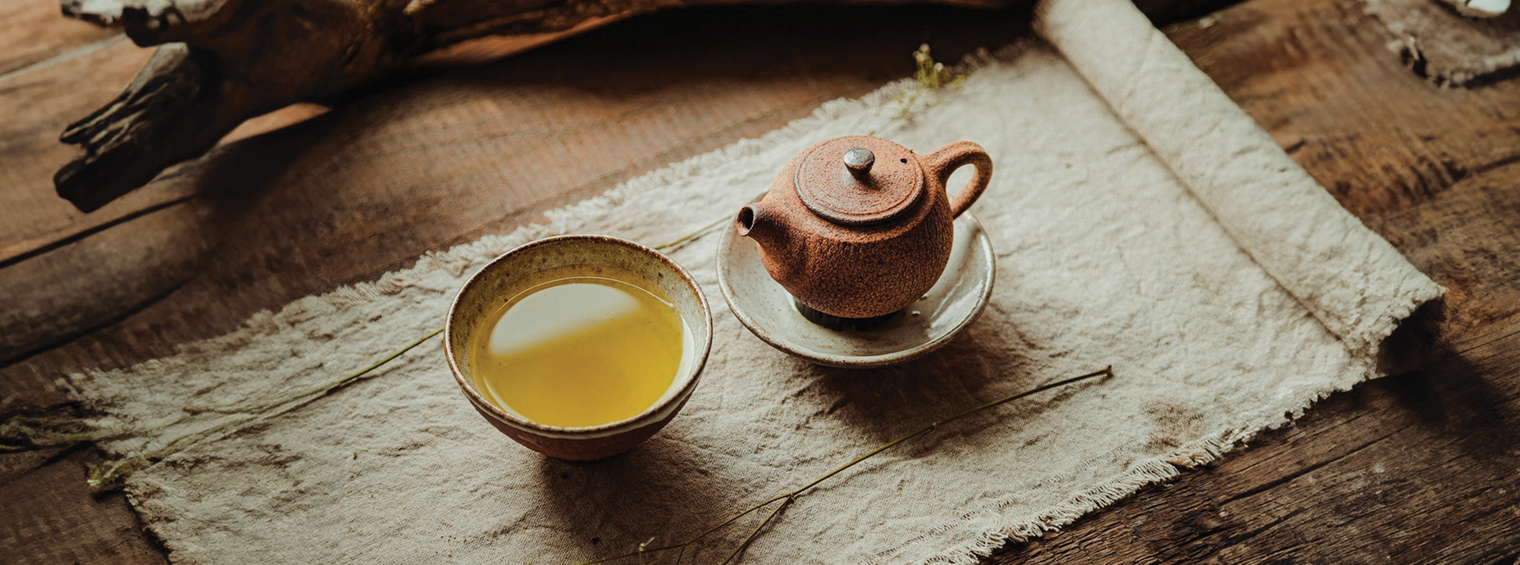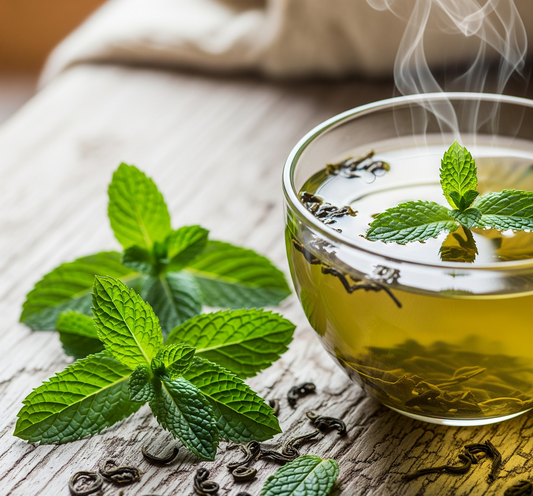When you're sipping your favorite cup of tea, you might wonder about its nutritional content, especially if you're mindful of your carbohydrate intake. In this article, we explore whether tea contains carbs, its nutritional benefits, and how it compares to other beverages. Plus, we’ll introduce you to some incredible low-carb teas from Nepal Tea Collective that are perfect for your lifestyle.
Quick Answer: Plain tea like black, green, oolong, and white contains 1 to 2 grams of carbohydrates per cup, making it negligible. However, flavored, milk-based, or sweetened teas can have added carbs.
Now, let’s explore different tea types, how brewing methods impact carb content, and how tea compares to other beverages.
Understanding Carbohydrates in Beverages
What Are Carbohydrates?
Carbohydrates are one of the three main macronutrients our bodies use for energy, alongside proteins and fats. They are primarily divided into two categories:
-
Simple carbohydrates (sugars found in fruits, sweets, and sodas)
-
Complex carbohydrates (found in whole grains, legumes, and fiber-rich foods)
In beverages, carbs primarily come from added sugars or naturally occurring sources like fruit. For example, a sugary soda can have high levels of simple carbohydrates, while pure beverages like tea typically have negligible amounts.
Role of Carbohydrates in a Balanced Diet
Carbohydrates provide glucose, the body’s primary energy source. However, excessive intake of refined sugars can lead to weight gain, insulin resistance, and other health issues. Opting for natural, low-carb beverages like unsweetened tea can help maintain steady blood sugar levels.
Types of Tea and Their Nutritional Differences
Tea comes in various types, including black, green, white, oolong, and herbal. Each type is processed differently, which affects its nutritional profile. Generally, teas contain minimal levels of carbohydrates often less than 1 gram per cup making them an excellent low-carb beverage choice.
For instance, black tea typically has robust flavors and comes with rich antioxidants, while green tea, with its lighter taste, possesses unique compounds like catechins that offer various health benefits. Nepal Tea Collective offers a range of unique Nepali teas, known for their delicious flavors and impressive health benefits due to the high altitude at which they are cultivated. Additionally, white tea, which is the least processed of all tea types, is celebrated for its delicate taste and high concentration of antioxidants, making it a favorite among health enthusiasts. Oolong tea, on the other hand, is partially oxidized, placing it somewhere between black and green tea in terms of flavor and health benefits, and is often praised for its potential to aid in weight management.
The Brewing Process and Its Impact on Nutritional Content
The way tea is brewed can influence not only its flavor but also its nutritional properties. Brewing time, temperature, and the type of tea leaves used all play a role in determining the levels of beneficial compounds, like flavonoids while leaving carbohydrates at bay. Shorter brewing times can yield a lighter, less tart cup, while longer brewing enhances the richness and antioxidant capacity. The ideal brewing temperature varies by tea type; for example, green tea is best brewed at lower temperatures to prevent bitterness, while black tea can withstand boiling water for a fuller flavor profile.
Comparing the Carb Content of Tea and Coffee
When looking at tea and coffee, the carbohydrate content remains fairly low for both beverages. A standard cup of coffee contains less than 1 gram of carbohydrates, similar to most types of tea. However, as with tea, the addition of sugar, syrups, or creamer can drastically increase the carb content in your coffee.
So, if you’re in search of low-carb beverage options, both tea and coffee can be safe bets. And for those who love to explore different flavors, a flavorful cup of Nepali black tea can be a delightful alternative to your regular cup of joe!
Herbal Tea and Carb Content
Herbal teas vary in carbohydrate content depending on their ingredients. Blends with dried fruits, flowers, or sweeteners may have more carbs. For instance:
-
Hibiscus tea may have trace amounts of natural sugars.
-
Chamomile and peppermint tea are virtually carb-free.
For a pure low-carb experience, try the handcrafted herbal teas and blends from Nepal Tea Collective.
How Brewing Methods Affect Carb Content
The way tea is prepared can influence its carbohydrate levels. Brewing loose-leaf tea or using tea bags without additives results in negligible carb intake. However, adding milk, sugar, or flavored syrups can significantly increase carb content.
For instance:
-
Black tea with milk and sugar = 10g - 15g of carbs per serving
-
Chai latte = 30g + carbs per cup (due to milk and sweeteners)
-
Bubble tea = 40g + carbs per serving (from tapioca pearls and syrups)
-
Plain brewed tea (loose-leaf or tea bags) = 0g carbs
To keep your tea low-carb, enjoy it plain or with a squeeze of lemon!
Read Some Interesting Tea Facts:
Does Tea Make You Pee?
Does Tea Make You High?
Tea vs. Other Beverages: A Carb Comparison
|
Beverage |
Carbohydrate Content (per cup) |
|
Black Tea |
~0g |
|
Green Tea |
~0g |
|
Herbal Tea |
0-2g (depends on ingredients) |
|
Coffee (black) |
~0g |
|
Fruit Juice |
20-30g |
|
Soda |
35-45g |
Switching from sugary drinks to tea can be a game-changer for those managing their carb intake and blood sugar levels.
Must Read: Carb Content of Different Types of Tea
The Health Benefits of Low-Carb Tea
According to Very Well Health, drinking low-carb tea and other beverages offers a variety of health benefits:
-
Rich in Antioxidants: Green and black teas contain catechins and flavonoids that support heart health.
-
Supports Metabolism: Green tea has been linked to increased fat oxidation and metabolism.
-
May Help Regulate Blood Sugar: Research suggests that polyphenols in tea can support insulin sensitivity.
-
Hydrating and Calorie-Free: Unlike sugary beverages, tea is a hydrating, guilt-free option.
For the highest-quality, antioxidant-rich teas, explore Nepali teas that are cultivated in the pristine high-altitude regions.
Is Tea Keto-Friendly? Can You Drink It on a Low-Carb Diet?
Yes! Since unsweetened tea has negligible carbs, it’s perfect for low-carb and keto diets. If you prefer a creamy tea, consider:
-
Adding unsweetened almond or coconut milk instead of regular milk.
-
Using a keto-friendly sweetener like stevia instead of sugar.
-
Trying butter tea (similar to Tibetan butter tea) for a high-fat, low-carb option.
Common Questions About Tea & Carbs
Does black tea have carbs?
No, plain black tea has 0g of carbs per cup.
Is green tea keto-friendly?
Yes! Green tea has zero carbs, making it perfect for keto diets.
What’s the best tea for a low-carb diet?
Unsweetened black, green, white, or oolong tea are great options.
Final Thoughts: Enjoying Low-Carb Tea
Tea is an excellent low-carb beverage that provides hydration, antioxidants, and a variety of flavors without added sugars. Whether you prefer a bold black tea or a delicate white tea, there are plenty of carb-free options available.
For the best selection of authentic, high-quality Nepali teas, visit Nepal Tea Collective and experience the taste of premium, hand-picked teas.
About the Author
Nishchal Banskota is the founder of Nepal Tea Collective, dedicated to offering the finest Nepali teas. With years of experience in the tea industry, Nishchal is passionate about sharing the culture and craftsmanship of Nepali tea with the global tea industry. Learn more about Nepal Tea Collective and explore a variety of award-winning teas that bring you closer to the heart of Nepal.




